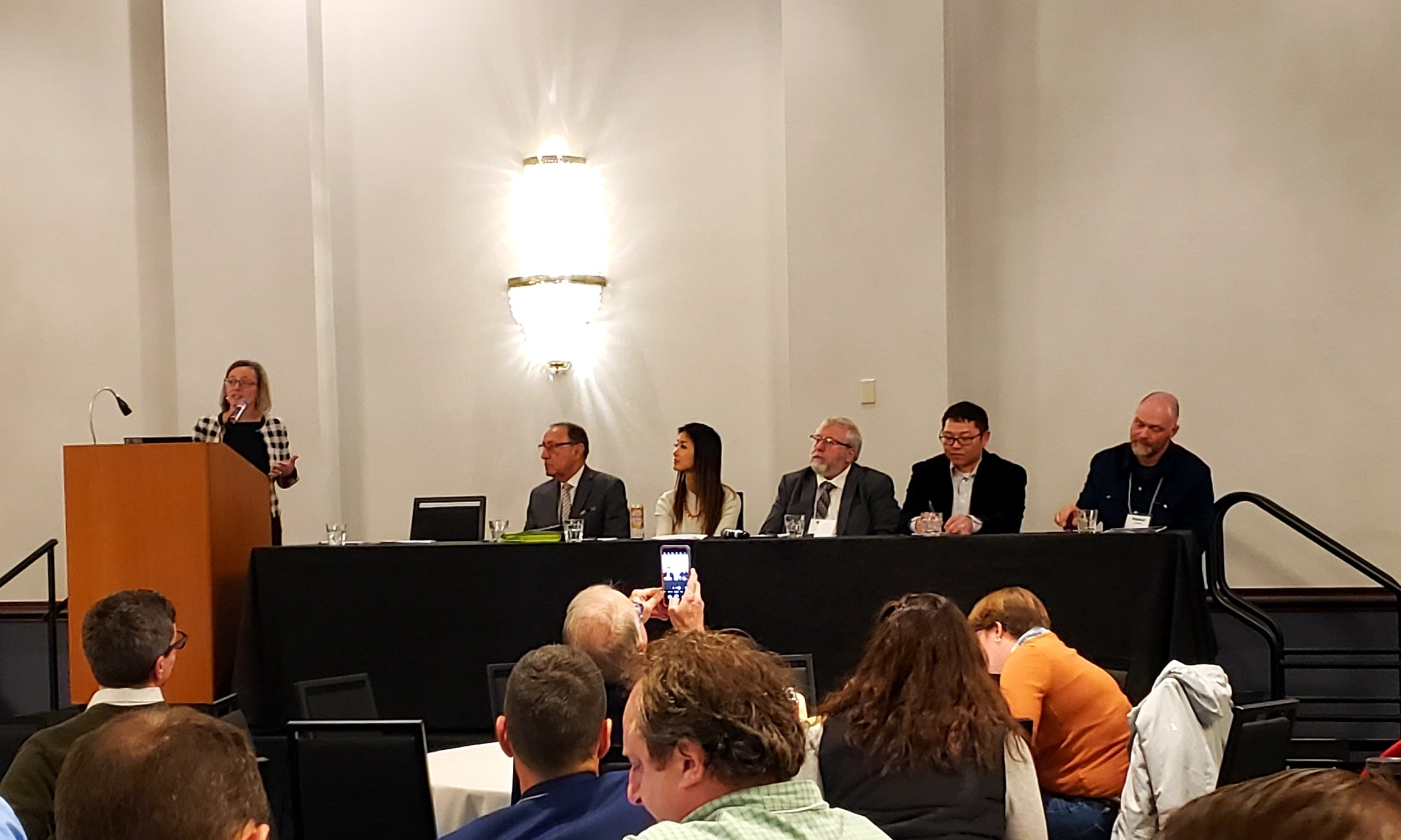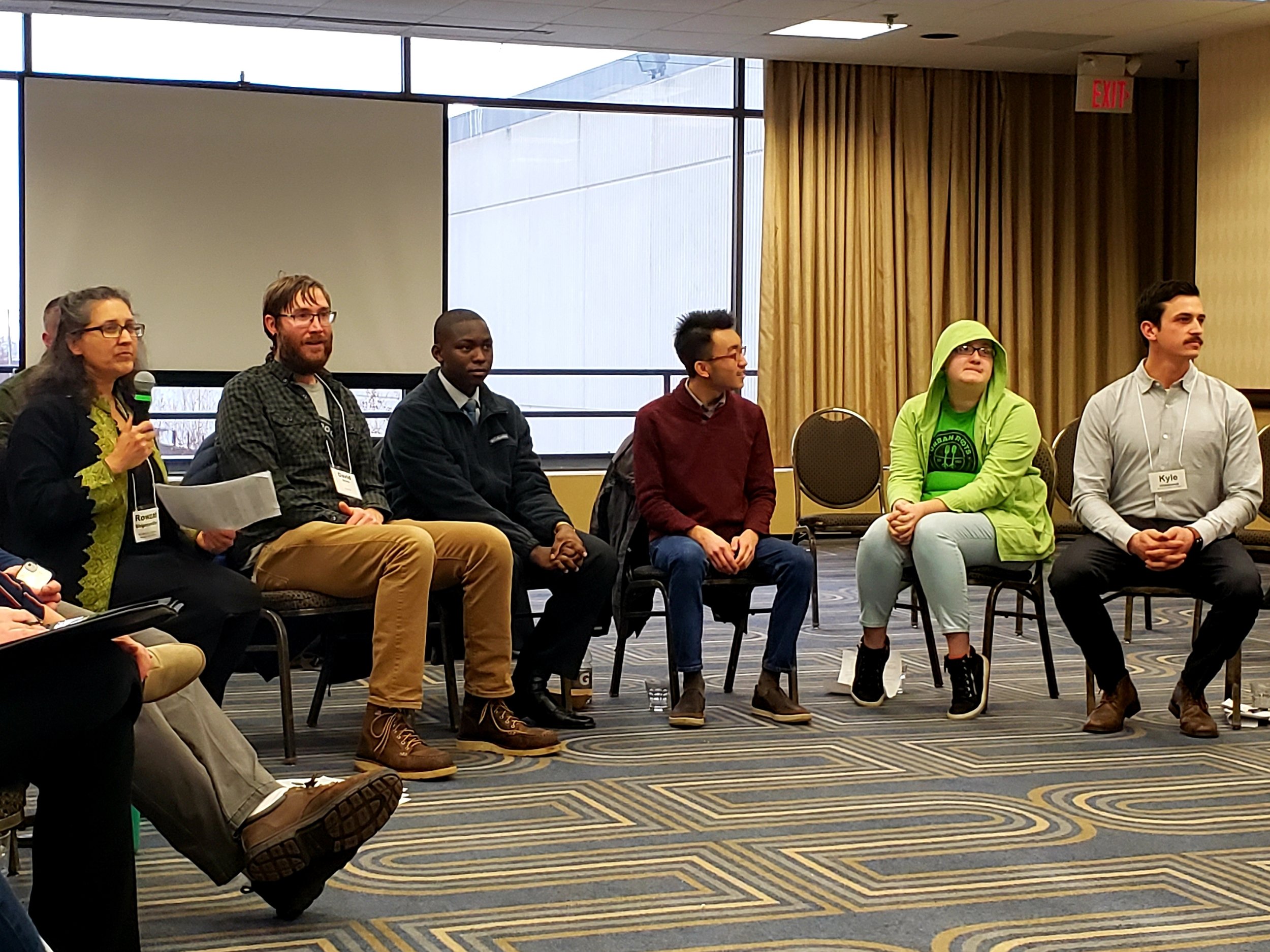
Minnesota is blessed with many outdoor recreation opportunities
What does connection mean to you? For me, connecting means building relationships and developing community for a healthy future.
In late January, I was stoked to attend the Minnesota Department of Natural Resources Roundtable because this year’s theme of connection fits right into my work; Connecting to the Outdoors. Commissioner Sarah Strommen talked about three things regarding outdoor connection that resonated with me. She said we need these [outdoor] connections because they are critical in creating stewards for tomorrow, outdoor communities across the state and health and wellbeing for everyone. I want to expand on each of those here.
Creating stewards for tomorrow
To create stewards, we must start with love; love of place, love of beings and love of nature. As I teach ecopsychology (the human-nature connection), I explain how each person has a different environmental identity and anyone working with others to move them outdoors must meet there customers or clients where they are, with their comfort level outdoors. Understanding everyone has a unique perception and experience outdoors and no one way is right, is the first step in creating future stewards.
Once someone loves a place or activity, they are more likely to defend and protect it. I talk about reciprocity and advocacy for natural places in my workshops. After a great experience outdoors I ask, “What can you do to make sure this place or activity is here for you and for others in the future?”
Today’s outdoor recreationists aren’t oriented to “give” as much as they “take”. We need an attitude of reciprocity if we are to save our outdoor spaces for future generations. I’d like to see a day when outdoor groups and companies talk about advocacy from the first introduction. I hope for a day when mentors are talking about and demonstrating reciprocity every time they venture out.
Creating outdoor communities across the state
The session on Communities Connecting to the Outdoors provided several successful examples of creating outdoor-oriented communities. I realize we are greatly blessed with outdoor recreation here in Minnesota. To see examples of right attitudes and partnerships warms my heart.
The City of Fergus Falls in combination with US Fish and Wildlife Service, schools and community leaders worked together to create the Prairie Wetlands Learning Center where all students in 4th and 5th grades, go to every day for ½ day. Math, literature, art and many other basic education lessons are taught by incorporating nature. Students have the opportunity to learn through duck banding, tagging butterflies and creating pollinator-friendly areas. The city is also in the process of revitalizing the downtown riverfront to include the benefits that rivers bring to the health of people and places.
The City of Lanesboro presented a case for creating an outdoor community and even states on its website that the city “owes much to the wisdom of converting an abandoned rail line into a bicycle trail.” They are a stop along the Root River Trail, have the Root River Dam/Waterfall as a tourist spot and include the Eagle Bluff Environmental Learning Center. Mayor res Resseman stated that ecotourism has been their key to vitality and now claims the city to be the B&B Capital of Minnesota.
Each community talked about relationships, partnerships and how much this outdoor focus is healing for their communities, in health, and in economy. They are seeing the benefits of involving schools, parks and recreation, government, local clubs and even artists in developing a community culture of love for the outdoors.
Creating health and wellbeing for everyone
My favorite session at Roundtable was Youth Voices: Connecting to the Outdoors where we were introduced to Urban Roots program. Their tagline is “cultivating leadership” and they first get students involved through internships. These are inner-city youth who use urban gardening, cooking, and conservation to change the social status and health of their neighborhood. Students are learning how to care for the land, use their garden to create healthy recipes and meals, develop business through the sale of garden and bee products and even improve and restore local conservation lands.
As the students expressed their love for caring for the land, gardening, and cooking, it was evident to me that the work was healing them as individuals and their communities. Several of these youth expressed their sense of accomplishment in restoring and protecting places near their homes. This means they are more likely to advocate and protect for the future. The entire system is becoming healthier.
I imagine the students don’t even realize how much their physical labor is positively affecting their mental health. There is no need to tell them; they can feel it. As I talk to groups about ecopsychology, I say that the best mind healing comes from helping heal the Earth through restoration and other outdoor projects. I am doing my best to connect networks in outdoor recreation to those in psychology to bridge these gaps so that both people and the planet can heal.
What’s next?
I am doing my best to bring as many of the three pieces together in my own work. I am teaching a series of workshops on ecopsychology, the human-nature connection, to help connect therapists, counselors, social workers, teachers and youth leaders about the importance of nature for wellbeing. I’ve made a commitment to talking about advocacy and reciprocity each time I lead. I hope participants take what they learn back to their communities so we all start feeling more whole and practice reciprocity with Earth in our daily lives.
If you have, or know of, a youth/family social services group, therapist, teacher, outdoor recreation leader or anyone else that wants to dig into the human-nature connection, I welcome you to attend;
Introduction to Ecopsychology
February 28, 2020
Online (Zoom) or in-person
Adler Graduate School, 10225 Yellow Circle Drive, Minnetonka, Minnesota
Register at: https://alfredadler.edu/events/2308.
“Connecting to the outdoors is more than opportunities; it’s connecting outdoors to our daily lives.” Commissioner Sarah Strommen, Minnesota Department of Natural Resources

Commissioner Strommen addresses the group during the plenary session.

Connecting Youth Outdoors breakout session
